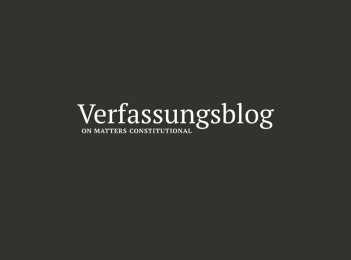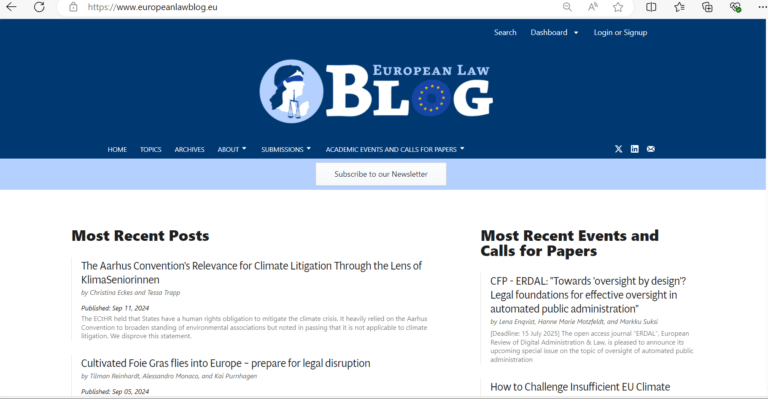The Law and Policy of the EU External Environmental Action: How Green is the EU Green Deal?
Professor Christina Eckes will give a keynote speech at this conference at Radboud University, 12-13 June 2025. Titled, ”Climate, Trade, and Human Rights: The EU’s Balancing Act” the talk will explain why the European Union has politically and legally no other option than to comply with the positive obligations to mitigate climate change as they were spelt out by the European Court of Human Rights in KlimaSeniorinnen.
These obligations require staying within one’s fair share of the global emission budget associated with 1.5°C and taking responsibility for one’s consumer emissions. Both aspects pose serious challenges for the EU when implementing the Green Deal and concluding trade agreements, including the controversial EU-Mercosur trade deal. The talk will explain these challenges, highlight the consequences of ignoring the legal redlines under the European Convention on Human Rights, and give pointers on how to walk the tightrope of the green transition.
The conference is organised by Narine Ghazaryan, Henri de Waele and Martyna Stećko.
Introduction to the conference
The launch of the Green Deal in 2019 marked a crucial moment in the EU’s environmental policy, promising a radical shift towards sustainability and climate neutrality. This ambitious agenda intends not only to reshape internal policies, but also carries profound implications for the Union’s external environmental action. The organisation is seen as a global leader in environmental action and a key promoter of UN climate goals, including the Paris Agreement. The EU’s ‘Green Deal Diplomacy’ leverages its internal green transition to engage international partners through trade and development policies. The ambitious goals of the Green Deal, however, often clash with practical legal and policy challenges, in addition to raising questions about equity and justice, particularly in the EU’s relations with the Global South. This seminar, organised by the Department of International and European Law and co-funded by Radboud Centre for Sustainability Challenges, explores a number of themes within this broader context.






